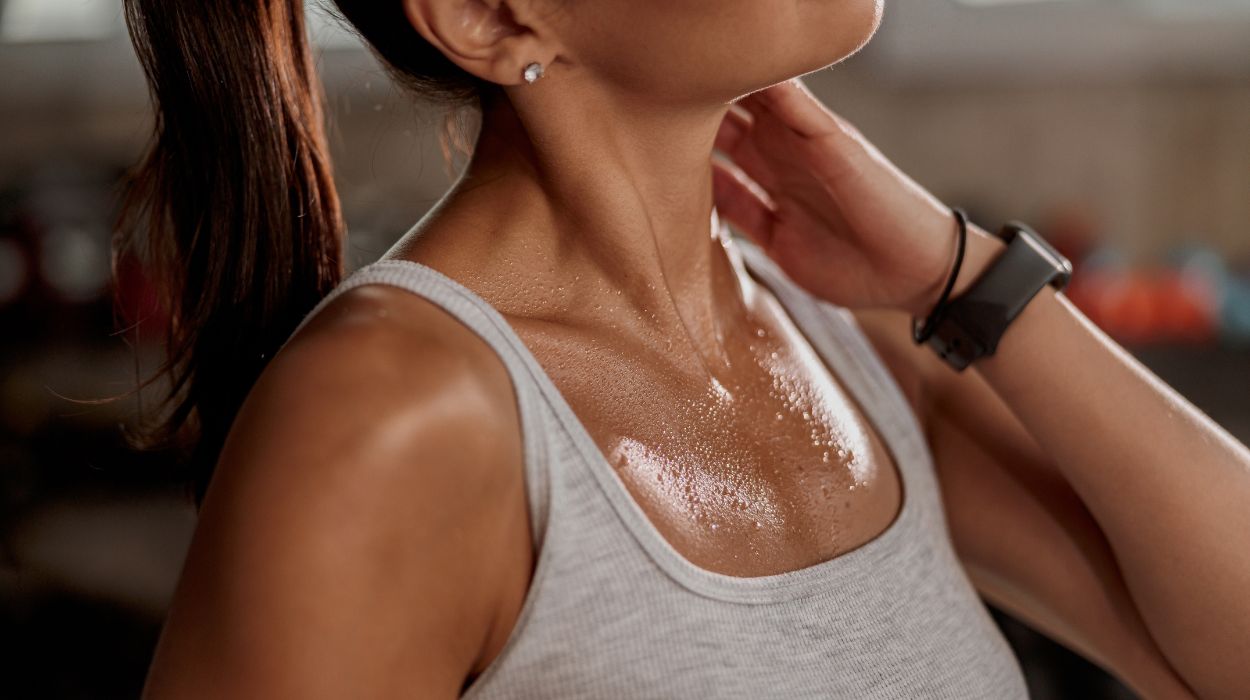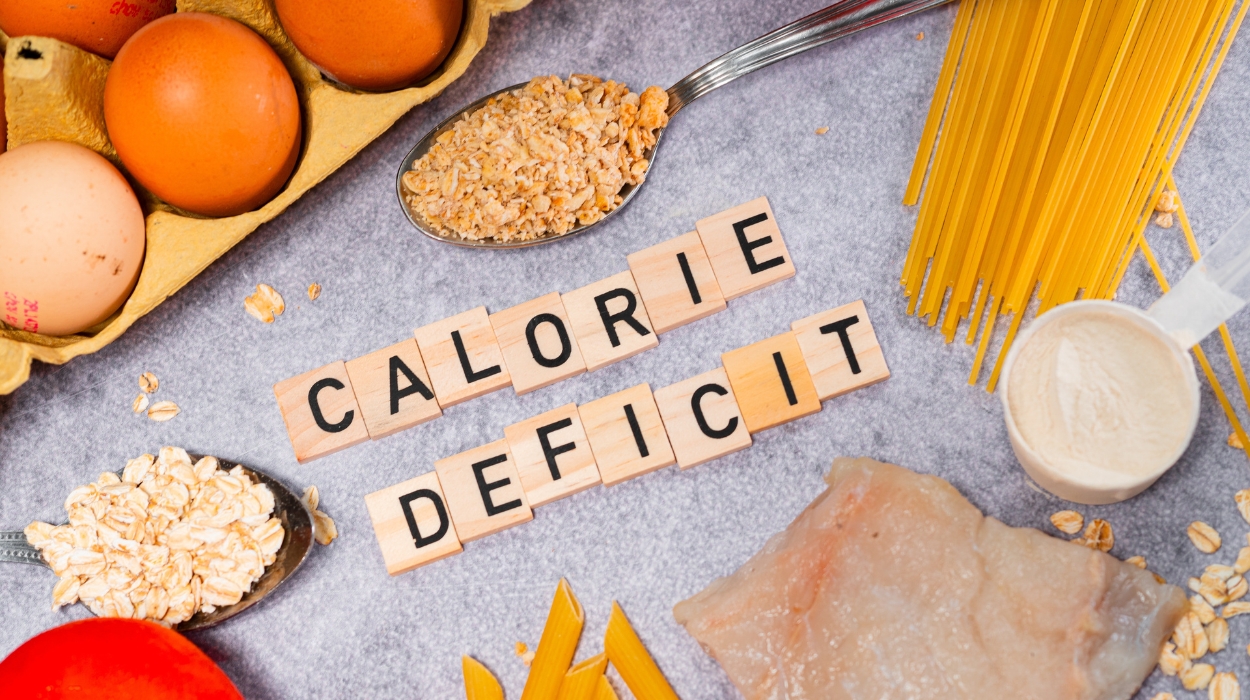
Every so often, we come across deceiving commercials where they claim that their products induce sweating to lose weight. Sweatsuits and slimming sweat creams are still on the market. But the real question is, does this sweating help you lose weight?
Or, is it a trick that leads to emotional purchase? People’s desperation to lose weight fuels all these kinds of ineffective products and methods. That becomes a fad sooner or later. Does sweating burn fat? This read will give you complete information about sweating and its relation to weight loss.
Does Sweating Help You Lose Weight?
The human body produces sweat to regulate body temperature. Sweating cannot burn any calories for you on its own. And although sweating is often linked with physical activities, you are not going to lose weight just by sweating.
However, when you exercise regularly and participate in frequent physical activities, you will sweat, and you are also going to lose weight, thanks to your exercise regime. Sweating alone does not have anything to do with weight loss. Adopting an active lifestyle, and following a healthy diet are the obvious ways to lose weight.
Does Sweating Burn Calories?

Sweating is how your body keeps up with regulating temperature. As it releases salt and water, evaporation helps cool your body. Sweating, on its own, cannot burn any calories for you. However, when your body sweats out a lot of liquid, you will lose water weight. It is only a temporary loss, though. As soon as you rehydrate yourself with either a drink or food, you will immediately regain that lost weight.
We all might have seen people wearing sweatsuits, and sweat belts, and going to saunas. Wearing them during your workouts is no less than torturing yourself. Sweating clothes that induce sweating is not new. They were being used by athletes like boxers, bodybuilders, and martial arts fighters. But how does sweating help you lose weight? The idea behind this is to maintain increased body temperature throughout the workout.
Our body uses sweat as a cooling system[1] to regulate body temperature. When our body attains a certain temperature, our sweat glands produce sweat due to the heat. And once the sweat evaporates off the skin, the cooling effect begins.
When our body mass is wrapped in thick clothing like sweatsuits, the sweat produced is unable to evaporate and the body’s cooling system fails. Our body would assume that it has to produce more sweat to regulate body temperature.
This results in clothes dripped with sweat and lots of fluid loss. You may temporarily weigh less, but that loss is of water weight, and not fat. It is an unhealthy weight loss. Your body will regain the lost weight as soon as you start drinking water again or eating. So the answer is you do not lose weight with this type of sweating. However, many other ways help support healthy weight loss.
What Is Sweat And How Is It Produced?
Sweat is produced through two sweat glands in the body, namely eccrine glands and apocrine glands. A large amount of sweat is produced by eccrine glands. The process through which your body secretes sweat is called perspiration.
Sweat is made of salt, urea, ammonia, and proteins. The apocrine glands are the larger ones and are mostly located in the armpits, breasts, and groin. They are located near hair follicles in various organs.
Apart from cooling down, there are many reasons our body starts producing sweat. Our nervous system regulates sweat related to body temperature and exercise by activating eccrine glands. Whereas, apocrine glands secrete emotional sweat which is not dependent on temperature regulatory functions but to counter challenges.
These glands secrete sweat during fight or flight responses. Sweating when we are stressed and anxious is also a part of their function.
Some Interesting Facts About Sweat
- Spicy foods can stimulate sweating.[2]
- Sweat may be saltier if you are on a low-sodium diet.
- Foods like garlic, onions, and cabbage may worsen the body odor.
- Drinking alcohol may produce more sweat. As it tricks the body into thinking you are working out.
- Apocrine sweat is odorless,[3] as it gets its odor from bacteria that live on the skin. When mixed it may be foul-smelling.
Why Do We Sweat When We Work Out?
Our body disposes of fat deposits through a series of metabolic activities. One of the byproducts of fat metabolism is sweat. Moreover, the breakdown of fats to liberate energy for physical activities and biological functions generates internal body heat, and sweating supports regulating body temperature.
Why Sweating Out Does Not Mean Fat Loss?
At some point in our lives, we all believed that the more sweat, the better the workout, and the greater the fat burn. Sweat has been a major parameter to measure the effectiveness of physical activity and calories burned. However, it is not an indicator of whether your workout is effective or if it increases fat loss.
Although an intense workout or sauna may make you sweat like a pig, you may not be burning fat. Our body burns calories and converts them into energy from our fat stores, but it shall refill this once you eat your next meal. Fat loss can happen with your workouts along with your intake of fats and proteins. With resistance training and cardio, our body responds well to foods.
Many believe that yoga and pilates do not burn more calories or fat loss since you sweat less is a myth. They work in their way to make you fit. Some claim that Bikram yoga can burn up to 1000 calories an hour,[4] The claim is partially false though.
If you are wondering what Bikram yoga is, Bikram yoga is hot yoga where sweat-filled activities are performed in a room with a high temperature. A study conducted by Colorado State University[5] found that in a 90-minute hot yoga class, women burned an average of 330 calories. In contrast, men burned around 460 calories, which is equivalent to a brisk walk of 3.5 miles per hour to burn the same amount of calories.
This clearly says that your weight loss is not dependent on the amount of sweat your body releases. Therefore, sweating it out at the gym for hours, having a workout session in a hot environment, or wearing a sweat vest does not always mean fat burn.
Moreover, you can burn more calories by lifting weights or doing cardio when it is cold.
Does More Sweat Mean A Better Workout?
It is a huge myth that a heavy workout session with lots of sweat means a better workout. Sweating depends on many factors like genetics, environment, age, weight, and fitness level, as well as types of physical activity. Fit people and people who are obese may sweat profusely depending on many reasons. People with more sweat glands tend to sweat more compared to people with fewer sweat glands.
Too much sweating may also lead to conditions like dehydration and hyperhidrosis.
The potential risk factors of excessive sweating outweigh the benefits. Our body is largely dependent on water to carry out almost every function. As much as 60% of your body is made up of water. It is essential to balance electrolytes and prevent dehydration.
Dehydration can be detrimental if overlooked. Fluid loss can lead to loss of electrolytes. It can cause heat exhaustion, which may lead to cardiac arrest. If your goal is losing fat and not losing weight, you should target fat instead of water. Water is essential to keep you healthy.
Things To Do To Burn Fat Other Than Sweating

If you want to burn fat, the golden rule is your calories out should be more than the calories in. And, one effective way to burn calories more efficiently naturally is by following a calorie-restricted diet. A good exercise regime is also a must for weight loss.
If you like to pump up your heart rate and generate heat in your body, try cardio or High-Intensity Interval Training (HIIT). The latter is proven to burn more calories than any other exercise. If you are someone who hates cardio, try yoga or weights.
Improve the quality of food choices, and cultivate a habit of mindful eating, as it helps support a healthy weight. And, you can always burn calories with the help of natural supplements like caffeine and green tea extract.
Try consuming thermogenic foods and foods that are rich in soluble fiber. Glucomannan and psyllium husk are great soluble fibers that keep you full for a longer time. Thus, aiding in weight loss. You can also lose weight using supplements and juniper oil.
Final Words
Sweating does not help you lose weight. However, sweating through exercising regularly is a great way to achieve your weight loss goals. Besides giving you healthier skin, our sweaty body can also have benefits like boosting energy, improving mood promoting good sleep, and maintaining a healthy weight. But sweating by inducing temperature through sweat vests does not help burn fat.
Resources
- Baker, L.B. (2019). Physiology of sweat gland function: The roles of sweating and sweat composition in human health. Temperature, [online] 6(3), pp.211–259. doi:https://doi.org/10.1080/23328940.2019.1632145.
- Ranier Gutiérrez and Simon, S.A. (2015). Why do people living in hot climates like their food spicy? Temperature, [online] 3(1), pp.48–49. doi:https://doi.org/10.1080/23328940.2015.1119616.
- Hodge, B.D., Sanvictores, T. and Brodell, R.T. (2022). Anatomy, Skin Sweat Glands. [online] Nih.gov. Available at: https://www.ncbi.nlm.nih.gov/books/NBK482278/.
- Pate JL;Buono MJ (2014). The physiological responses to Bikram yoga in novice and experienced practitioners. Alternative therapies in health and medicine, [online] 20(4). Available at: https://pubmed.ncbi.nlm.nih.gov/25141359/.
- Dodge, J. (2014). [online] Colostate.edu. Available at: https://source.colostate.edu/researcher-hot-yoga-yields-fitness-benefits/.




